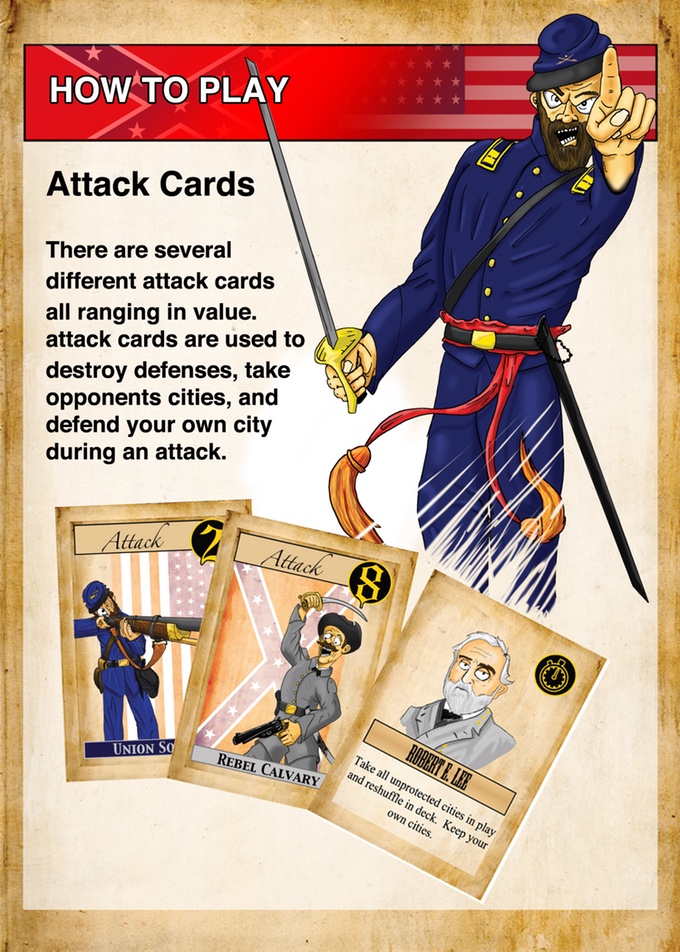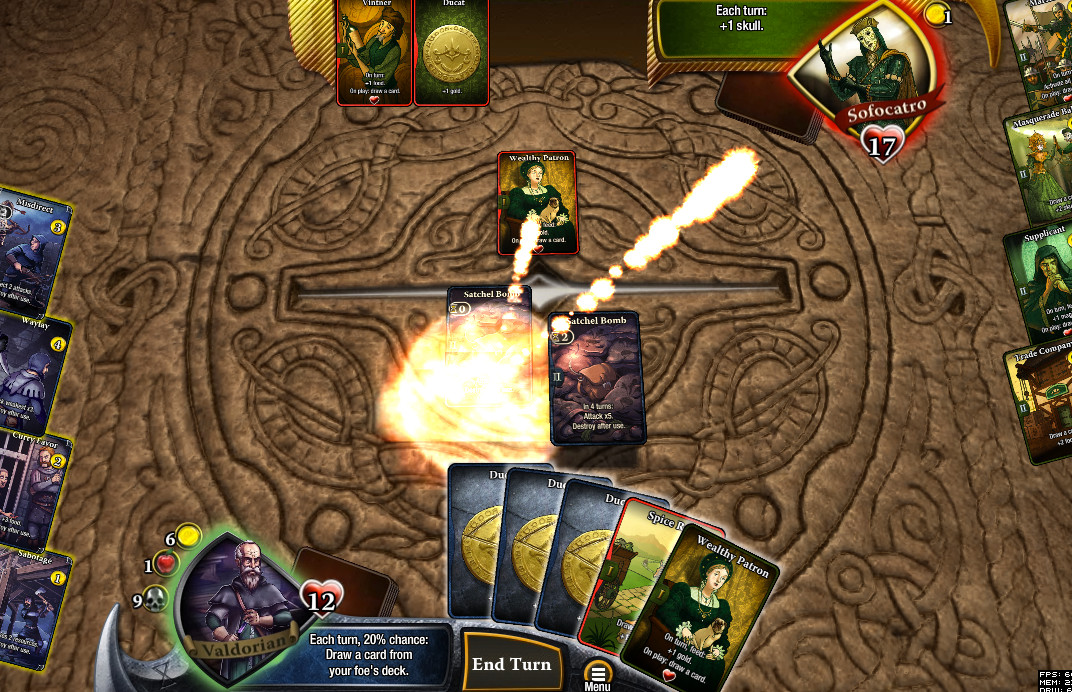War – This is a very simple game that’s fairly popular with children. A standard deck of cards is shuffled and split evenly between two players, who then lay their stacks face-down on a surface. Every turn, the players overturn their top card. Whoever’s card is of a higher rank wins the “battle,” claims both cards, and puts them at.
Language used: Java
This program is created with NetBeans enviroment.

War is a card game for two players.A standard deck of 52 cards is dealt so that both players have 26 cards.During each round of play (or 'battle'), both players play a card from the top of their hand face up.The player who plays the card of the higher rank wins both cards and places them at the bottom of his stack of cards.If both cards played are of the same rank, then both players play three additional cards face down and then one more card face up (this is called a 'war').The player who wins the war by playing the higher card wins all ten cards.If the ranks are still the same, additional wars are played until one player wins the turn.If either player runs out of cards to play, he loses the game.You will use only ArrayLists to store the cards in this program. This means cards cannot be stored in arrays.
##Sample output might look like this:
| Alternative names | Battle |
|---|---|
| Type | Catching type |
| Players | 2 |
| Skills required | Counting and card values |
| Age range | 5-12[1] |
| Cards | 52 |
| Deck | French |
| Play | Clockwise |
| Card rank (highest first) | A K Q J 10 9 8 7 6 5 4 3 2 |
| Playing time | 10–40 min. |
| Random chance | High |
| Related games | |
| Beggar-My-Neighbour | |
War (also known as Battle in the United Kingdom) is a card game typically played by two players. It uses a standard playing card deck.[2] Due to its simplicity, it is played most often by children. There are many variations, including the German 32-card variant Tod und Leben ('Life and Death').
Gameplay[edit]
The objective of the game is to win all of the cards.
Card Wars Download
The deck is divided evenly among the players, giving each a down stack. In unison, each player reveals the top card of their deck—this is a 'battle'—and the player with the higher card takes both of the cards played and moves them to their stack. Aces are high, and suits are ignored.[2]
If the two cards played are of equal value, then there is a 'war'.[2] Both players place the next card of their pile face down (some variants have three face down cards) and then another card face-up. The owner of the higher face-up card wins the war and adds all the cards on the table to the bottom of their deck. If the face-up cards are again equal then the battle repeats with another set of face-down/up cards. This repeats until one player's face-up card is higher than their opponent's.[2]
How To Play Card Game Called War
Most descriptions of War are unclear about what happens if a player runs out of cards during a war.[2] In some variants, that player immediately loses. In others, the player may play the last card in their deck as their face-up card for the remainder of the war or replay the game from the beginning.[2]
Game designer Greg Costikyan has observed that since there are no choices in the game, and all outcomes are random, it cannot be considered a game by some definitions.[3] However, the rules often do not specify in which order the cards should be returned to the deck. If they are returned in a non-random order, the decision of putting one card before another after a win can change the overall outcome of the game.[4] The effects of such decisions are more visible with smaller size decks as it is easier for a player to card count, however the decisions can still affect gameplay if taken in standard decks.
Variations[edit]
Card Game Called War
Being a widely known game, War has many variations. Recorded variants include:

- Casino War – A simple variation played for money in casinos.[5]
- Prisoners of War - (Usually used with more than 2 players) When a player wins a battle, they can choose to take one of the cards as 'prisoner'; this must not be one of their own cards. If they do, they put the card face up in front of them, away from the discard pile and the deck. When another battle is started, you may choose to not play a card from your deck, and instead of the 'prisoner' card. (You cannot look at the card you would have drawn and then choose to play the prisoner.) If you win the battle, it works like a regular one. If you lose, however, you give the winner the card you played as well as the card you would have drawn if you chose not to play the 'prisoner' card. If a war is initiated, it works the same way. If you win a war, you can also choose to 'capture' one of the face-down cards.[6]
- Bettelmann ('Beggar Man') and Tod und Leben ('Life and Death') - German variants mentioned as early as 1833.[7] Uses a 32-card Skat pack for 2 players with cards ranking in the natural order and suits being irrelevant, except that in Tod und Leben, one player plays with the red suits and the other with the black suits. Players get 16 cards each face down. They turn over their top cards at the same time and the higher card wins. If the cards are equal, players turn the next card and the winner takes all four cards. The player with the most cards at the end wins.[8]

See also[edit]
References[edit]
- ^Children's Card Games by USPC Co. Retrieved 22 Apr 2019
- ^ abcdef'Rules of card games: War'. Pagat.com. 2013-03-04. Retrieved 2014-04-20.
- ^Costikyan, Greg (1994). 'I Have No Words & I Must Design'. Retrieved 2008-08-17.
- ^Lakshtanov, Evgeny (2011). 'On Finiteness in the Card Game of War'. arXiv:1007.1371.
- ^https://www.pagat.com/war/war.html
- ^War Variations
- ^Schenkel, C.F. (1833). Oekonomische Encyclopaedia order Allgemeines System der Staats-, Stadt-, Haus- und Landwirthschaft und der Kunstgeschichte, Volume 158, Paul Eischen Buchhandlung, Berlin, p. 127
- ^Tod und Leben at www.pagat.com. Retrieved 22 Apr 2019
Literature[edit]
- Gööck, Roland (1967). Freude am Kartenspiel, Bertelsmann, Gütersloh.
External links[edit]
- McLeod, John, ed., War, Card Games Website
- McLeod, John, ed., War Variations, Card Games Website
- This site lists several varieties of variations of the card game War.
- [1] Simulations of War using MATLAB
- [2] Another explanation of a War simulation using C++